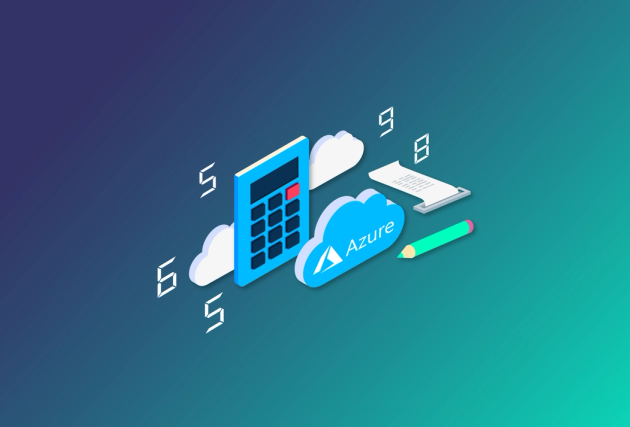[Podcast] How FinOps Is Helping Enterprises Make Better Financial Decisions
With times tight and the economic landscape uncertain, it makes sense that more businesses are turning their attention to FinOps.
In our latest podcast episode, Contino’s Principal Consultant, Ethan Sumner, and our Account Principal, Rosh Plaha, talk about what FinOps is, why it matters, and what they’ve noticed to be the common problems enterprises face when it comes to cost-effectively scaling cloud services.
In this blog, we highlight some of the key talking points from the conversation, which you can listen to in full here.
Optimising spend and boosting business value
For Ethan, FinOps is all about driving accountability and utilising that to further business value and spend.
“I think the core value for customers is helping customers understand how they actually approach the cloud and how they operate, and considering how this links to billing. Are they really clear on who's accountable, or who's got decisions over ability to spend or deploy units?”
While the initial attractiveness of FinOps is cloud-saving, it requires a considered approach, and can’t be a knee-jerk reaction to overspend. For long-term success, organisations need to have key fundamentals in place and go through the FinOps Foundation and bring together the three principles of inform, optimise and operate. While traditionally engineers may have been siloed from finance and procurement teams, in reality there needs to be much more collaboration to assess value and reduce spend.
Avoiding surprise costs
Every business has a story about surprise bills or cost anomalies, which are often caused by a lack of tracking, communication and accountability. When it comes to cloud spend, this is more likely to happen when there are no financial guardrails or controls in place. There’s a balance to be had between empowering developers to make changes, deploy changes and test code, and ensuring these changes don’t result in high bills. Communication and clear processes–-ideally automated ones—allow you to flag, investigate and predict rising spends, gradually working to become more proactive rather than reactive. Building a culture of shared accountability and regularly raising the issue of spend (for example at FinOps forums or in weekly scrum meetings) keeps it at the forefront of people’s minds and reduces the likelihood of small oversights becoming expensive problems.
In this podcast, Rosh and Ethan discuss the first (or next) steps organisations can take on their FinOps journeys according to their maturity. For startups and small organisations, there are five key steps they recommend:
- Visibility monitoring and static reporting, offering a weekly or monthly snapshot that helps you see trends
- Embedding accountability amongst developers, engineers and SRE teams, while setting up a no-blame culture to support empowered practices
- Setting up guardrails and policies for budget thresholds
- Implementing a tagging strategy where you assign keywords to cloud resources to support tracking throughout their life cycles, ensuring you continue to update as you scale
- Value-mapping—mapping a product or service to the cloud and associated spend
More accountability, less blame
How to assign responsibility is complex, but building more accountability doesn’t mean assigning blame. Rosh and Ethan discuss who would be accountable in the event that, for example, a developer leaves an EKS cluster on, resulting in additional spend?
This highlights the shifting nature of a developer’s role, the main pressures on whom, traditionally, would not have been around cost, but speed. The priority is developing features fast and pushing things out, but now that developers have more control and flexibility, Ethan argues they should therefore have greater accountability. To prevent a blameful culture though, there needs to be accountability at every reporting level, with processes in place to prevent issues. As well as having the right tools in place and automations, training is vital and finance and procurement teams also need to move away from traditional mindsets in order to adapt to the flexibility of the cloud model.
Just like engineers, procurement teams also had different roles—previously, their role would stop once a server (or thousands of servers) were delivered. After they’d negotiated terms and discounts, they’d place orders for products that would support the company for several years at a time. Now, however, it’s unrealistic to expect procurement to manually approve every single cloud spend, but what does this mean for their role in managing it?
For Ethan, it means that training has to move beyond traditional certifications to include more crossover with the technology and changing culture. While vendors such as AWS, Azure and Google can offer support, formal training (for example to understand itemised cloud bills) isn’t available; this is why the FinOps Foundation is working on a project called FOCUS, a Linux Foundation technical project to establish an open specification for cloud billing data. The project intends to normalise key cloud cost and usage measures across multiple Cloud Service Providers (CSPs), Software as a Service (SaaS) products, third-party costs and other billing data sources.
At Contino we're working to support vendors through training and feedback, and we look at the on-premises landscape and spend as well. As well as bringing our expertise in cloud migrations, we can also look at these from a cost and business value perspective. What’s the value of moving to the cloud and can we help you right-size by carrying out the pre-FinOps work that means you’re not overestimating or over-committing to an unnecessarily large bill?
How do you know if you’re doing FinOps right?
If you think your organisation’s got a handle on FinOps, it’s worth asking yourself a few questions to make sure your confidence isn’t misplaced.
For Ethan, the first question to ask is about tooling. The FinOps tooling landscape is going to be big, and there are already some dominant players in the game, as well as up-and-coming ones to watch, but it’s important not to think one tool will solve all problems. A tool on its own isn’t enough and can be pricey, so it’s vital to make sure that if you’re investing say, 2% of your annual cloud spend on a tool, that it isn’t cheaper to first seek out expert advice from companies like Contino to ensure you first address underlying issues and aren’t—somewhat ironically—adding unnecessary costs in an attempt to cut them.
As well as tools, consider what people and processes you have in place. Do you have dedicated engineers or a FinOps team, and do they have the necessary training, resources and time to carry out their roles to full effect? The FinOps Foundation recommends a team of 13 people for every £50 million cloud spend so you have to ask yourself if you have the right human infrastructure in place.
Thirdly—are you automating? If you're doing FinOps well you’ve already started to automate processes and, building on this, are you able to predict changes? A mature enterprise should be looking at how much they can predict cloud spend by predicting things such as seasonality of their different products or services or even public holidays.
Learn more about FinOps
If you’re interested in learning more about FinOps or getting involved in the FinOps community, Ethan suggests a number of ways, starting with the FinOps Foundation, which has lots of great resources as well as in-person events with a friendly team.
“If you’re a practitioner, I'd definitely recommend joining the FinOps Community Slack channel. You can use it to meet FinOps practitioners and share and discuss best practices, use cases and stories. I'm now part of the organising committee for FinOps meetups in the UK, hosting events every couple months around the UK. I would also recommend having the conversation internally around your organisation about cost and cloud spending—you’ll undoubtedly find others who are also interested.”
And of course, if you’re looking for support at an enterprise level, reach out to Contino.
Click here to hear the full conversation in our latest podcast episode.






